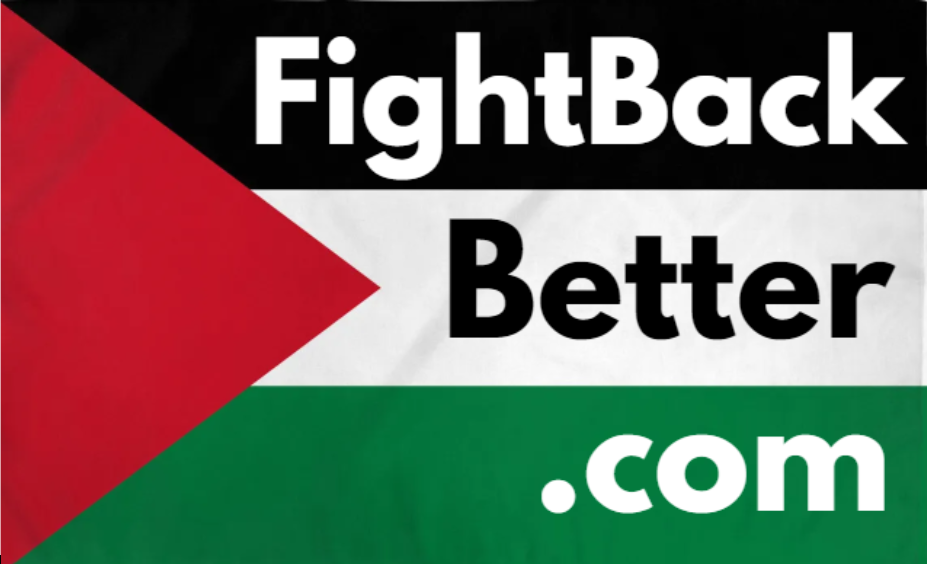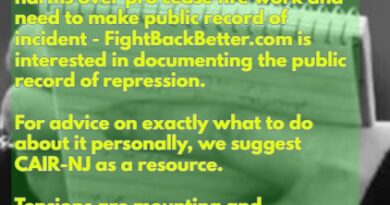1/20-1/24 Palestine Actions in New Jersey
The Palestine solidarity movement is entering a critical period of regroupment and consolidation following the declaration of a temporary ceasefire in Gaza. The past year and three months have been marked by urgent, emergency-level activism as our movement fought to expose the daily crimes of the Israeli Occupation Forces (IOF) and called for an immediate end to the war. With a fragile peace now in place, it is time for us to reflect on our strategies, assess what has worked, and plan for the difficult challenges ahead.
However, we should not be under any illusions that the violence will cease. While the level of daily killings has decreased, the situation remains dire. Israeli forces have already killed an unarmed child in Gaza and carried out major offensives in the West Bank, including the occupation of the Jenin refugee camp and violent assaults on the town of Al-Funduq by a coalition of settler mobs and regular IOF forces in retaliation for a shooting attack against a bus in the West Bank that killed 2 civilians from the illegal West Bank settlement of Kedumim and 1 Israeli police officer while injuring 8 others. Meanwhile, Donald Trump has taken power in Washington, which marks a shift in U.S. policy. Unlike previous administrations, which unwaveringly supported Israel, the current U.S. leadership’s “America First” agenda present both opportunities and challenges for our movement. This evolving political landscape requires new ideas and tactics at the grassroots level, as we continue to advocate for justice for Palestine. This has been reflected in the slogans raised by the peace vigils held every week across NJ.
Focusing on UNRWA: A Key Axis of Resistance
One of the primary areas where we must concentrate our efforts is the defense of the United Nations Relief and Works Agency (UNRWA), which provides vital support and services to millions of Palestinian refugees across the Levant and beyond. UNRWA is a lifeline for these refugees, offering education, healthcare, and employment opportunities. It is despised by Israel because its existence acknowledges the reality of Palestinian displacement and the ongoing consequences of Israeli ethnic cleansing. By caring for the descendants of Nakba victims, UNRWA is a steadfast reminder of the Palestinian right of return.
Israel’s smear campaign against UNRWA employees following the October 7th attacks was part of a broader strategy to delegitimize the agency and undermine Palestinian resistance. This disinformation campaign led to a significant reduction in funding for UNRWA, with the United States pulling its financial support completely. While many countries have since restored funding, the U.S. remains a key holdout. Furthermore, Israel’s Knesset recently passed a law that bans UNRWA from operating in all areas under Israeli occupation, a move that will take effect by the end of January. It is essential that our movement stands in defense of UNRWA and calls for international support to ensure its continuation.
Regular Events:
South Jersey for Gaza has shifted its weekly rallies from Tuesdays to Wednesdays from 3-4:30 in Mt Laurel at Pioneer Steakhouse, with a new focus on holding the current Republican administration accountable. The group is replacing its former slogan, “Democratic Party, Stop the Genocide, Arms Embargo Now,” with one that demands action from the new leadership. Slogans under consideration include “Donald Trump, Keep Your Word, Defend the Ceasefire in Gaza with an Arms Embargo Now,” and “Gaza Needs More Than a Ceasefire – End the Blockade Now.” The group is also designing new posters that put the focus on The West Bank including “All Eyes on the West Bank” and “Israel out of Jenin”.
In Teaneck, the weekly vigil organized by Teaneck for Peace and Justice has rallied under the slogan “Honk for a Permanent Ceasefire in the West Bank and Gaza.” This calls for a permanent end to the violence, not just a temporary cessation. Meanwhile, the Montclair Peace Vigil for Palestine continues its regular gatherings, holding space for community solidarity every Friday.

One-Time Actions and Events: Amplifying the Movement
Students at Rutgers University mobilized against a proposed bill under consideration by the Rutgers University Student Association that seeks to codify the International Holocaust Remembrance Alliance (IHRA) definition of anti-Semitism, which would limit free speech and crack down on anti-Zionist expression. The Rutgers Students for Justice in Palestine (SJP) organized a public speak-out to challenge this move at the meeting of the RUSA held on Thursday January 23rd at 7:15pm. This was the second time the RUSA had met to discuss the bill, as the first session was cancelled by administration after various student organizations mobilized to speak out against it.

In New Jersey, Port Workers and Communities for Palestine picketed All-Ways Forwarding, a company that ships weapons to Israel. The picketers demanded that All-Ways cease its collaboration with ZIM, an Israeli shipping company involved in the transportation of military supplies to the occupying forces. These actions highlight the importance of targeting institutions and corporations that facilitate Israeli violence against Palestinians.

Upcoming Events: Solidarity in Action
Looking ahead, several events are planned to sustain and build momentum for the movement. DSA-Trenton, which had to cancel its protest last Sunday due to weather conditions, is rescheduling protests for the next two Sundays, continuing its advocacy from 12 PM to 2 PM across from the Trenton Farmer’s Market. Additionally, Ceasefire Now NJ and NJ Peace Action are hosting a Palestinian Cultural Festival this Sunday, January 26th, in Jersey City. This event will feature Palestinian vendors, traditional dance, food, arts and crafts tables, and a raffle, all while raising funds for Palestinian charity groups such as Heal Palestine and the Palestinian Children’s Relief Fund. Palestinian artists will also have the opportunity to showcase their work, celebrating Palestinian culture and resilience.

Conclusion: A Movement in Flux
The ceasefire in Gaza offers a brief but valuable opportunity for our movement to regroup and strategize for the next phase of resistance. With the U.S. administration shifting its stance and Israel continuing its military campaigns, we must remain vigilant and proactive. Defending vital institutions like UNRWA, holding political leaders accountable, and continuing grassroots mobilization will ensure that the movement stays strong and relevant. As we confront the reality that the struggle for Palestine is far from over, the global solidarity movement must continue to adapt, grow, and push for justice. Our work is far from done—but with a united, focused approach, we can help chart a path toward liberation and peace for Palestine.









